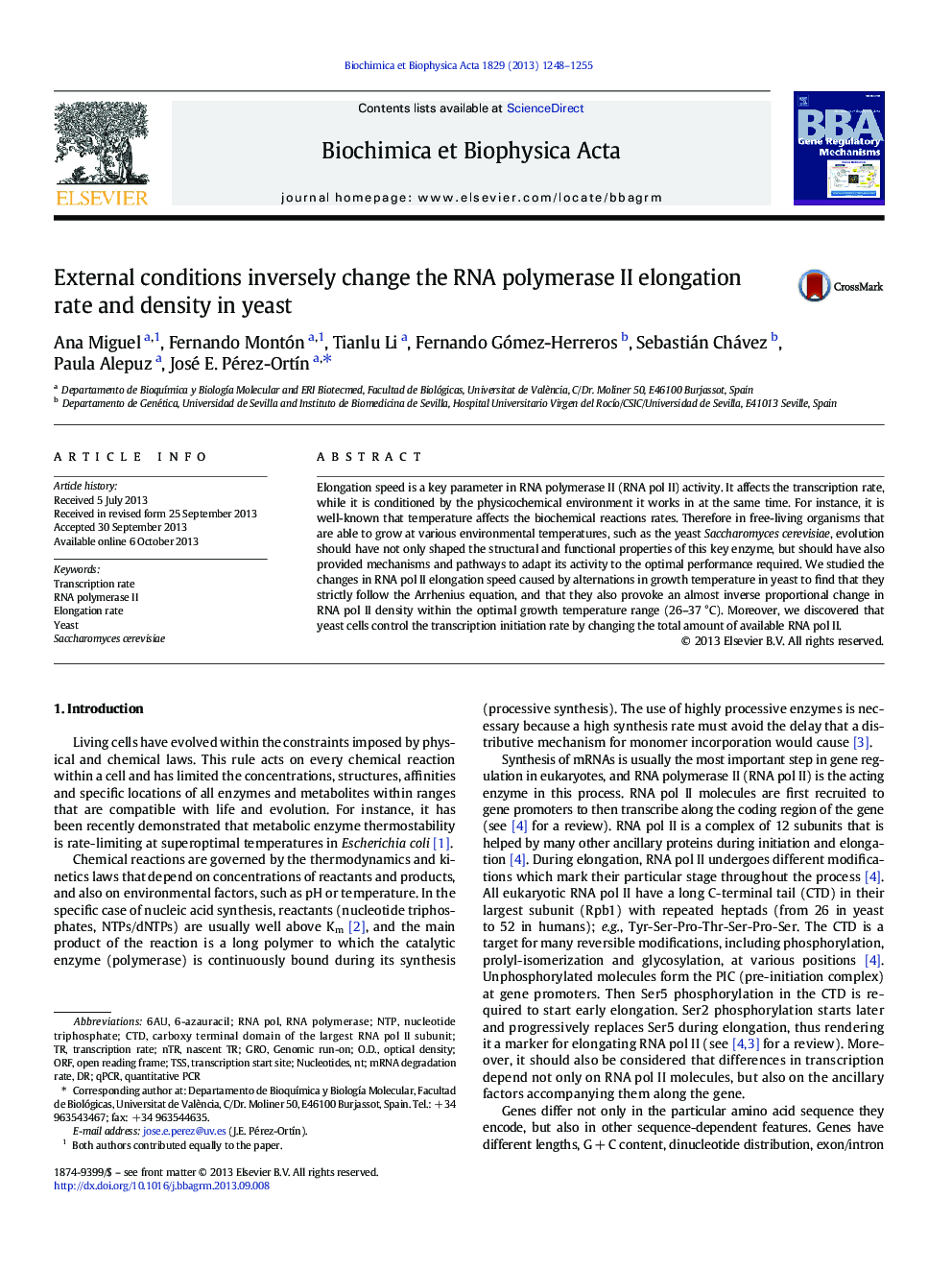| Article ID | Journal | Published Year | Pages | File Type |
|---|---|---|---|---|
| 1946484 | Biochimica et Biophysica Acta (BBA) - Gene Regulatory Mechanisms | 2013 | 8 Pages |
•RNA pol II elongation rate increases with temperature in vivo.•Temperature dependence follows Arrhenius equation.•RNA pol II density and speed inversely correlate.•At the usual growth temperatures TR is controlled at the level of RNA pol II amount.
Elongation speed is a key parameter in RNA polymerase II (RNA pol II) activity. It affects the transcription rate, while it is conditioned by the physicochemical environment it works in at the same time. For instance, it is well-known that temperature affects the biochemical reactions rates. Therefore in free-living organisms that are able to grow at various environmental temperatures, such as the yeast Saccharomyces cerevisiae, evolution should have not only shaped the structural and functional properties of this key enzyme, but should have also provided mechanisms and pathways to adapt its activity to the optimal performance required. We studied the changes in RNA pol II elongation speed caused by alternations in growth temperature in yeast to find that they strictly follow the Arrhenius equation, and that they also provoke an almost inverse proportional change in RNA pol II density within the optimal growth temperature range (26–37 °C). Moreover, we discovered that yeast cells control the transcription initiation rate by changing the total amount of available RNA pol II.
